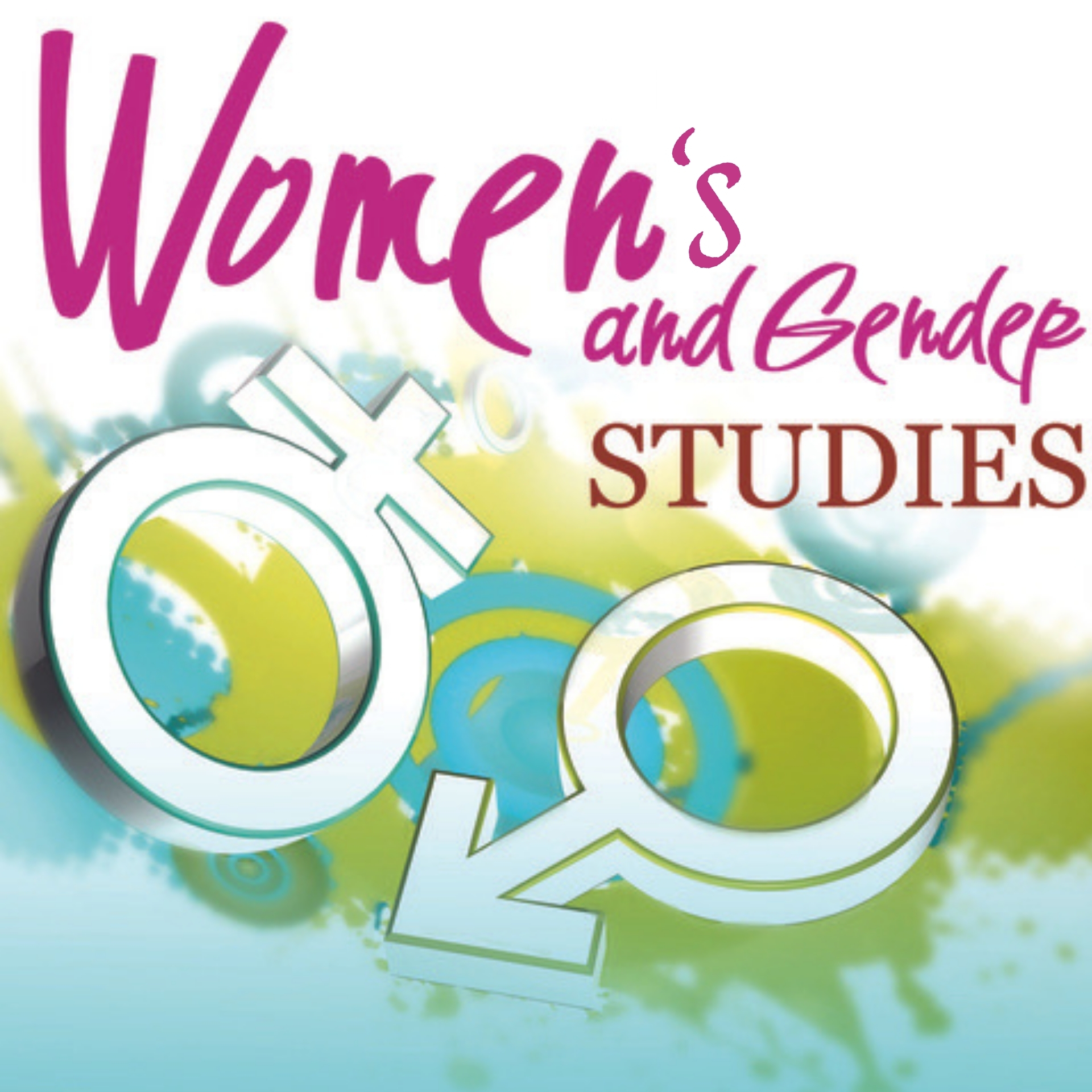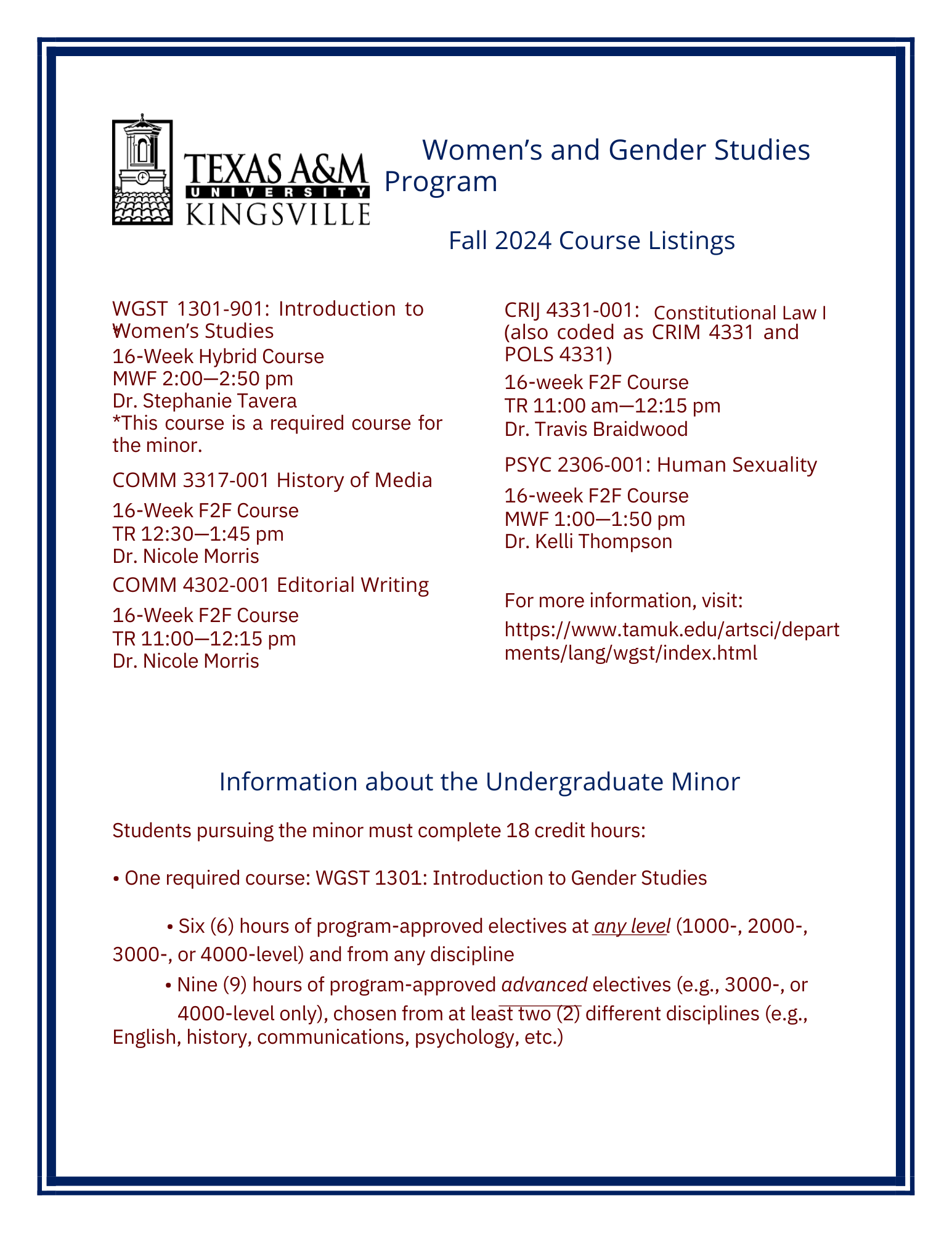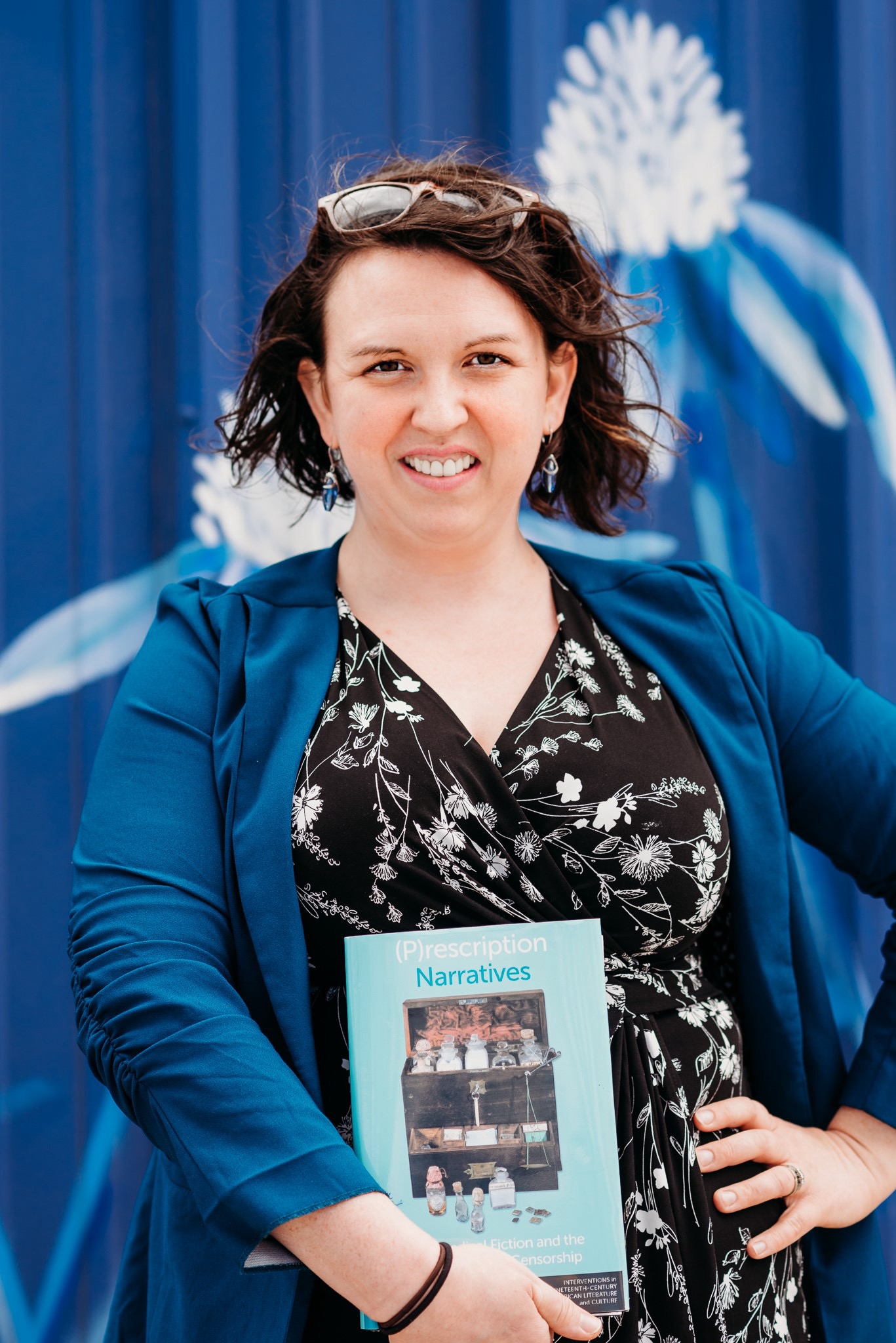

Students pursuing the minor must complete 18 credit hours:
- One required course: WGST 1301: Introduction to Gender Studies Six (6) hours of program-approved electives at any level (1000-, 2000-, 3000-, or 4000-level) and from any discipline
- Nine (9) hours of program-approved advanced electives (e.g., 3000-, or 4000-level only), chosen from at east two (2) different disciplines (e.g., English, history, communications, psychology, etc.)
This list of program-approved electives for Fall 2024 include;
- COMM 4302-001: Editorial Writing
- COMM 3317-001: History of Media
- CRIJ 4331-001: Constitutional Law I (also coded as CRIM 4331 and POLS 4331)
- PSYC 2306-001: Human Sexuality

Message from the Director of Women’s and Gender Studies Program
The Women’s and Gender Studies program holds the position that 'feminism is for everybody,' as bell hooks says. Feminism is about creating a more equitable world for all persons regardless of identity, but especially for persons who are historically marginalized including people of color, people with disabilities, and LGBTQ people. We hope you will find your tribe in our program, as the faculty seek to promote inclusion across campus.
More Info
Dr. Stephanie Peebles Tavera, Assistant Professor of English
